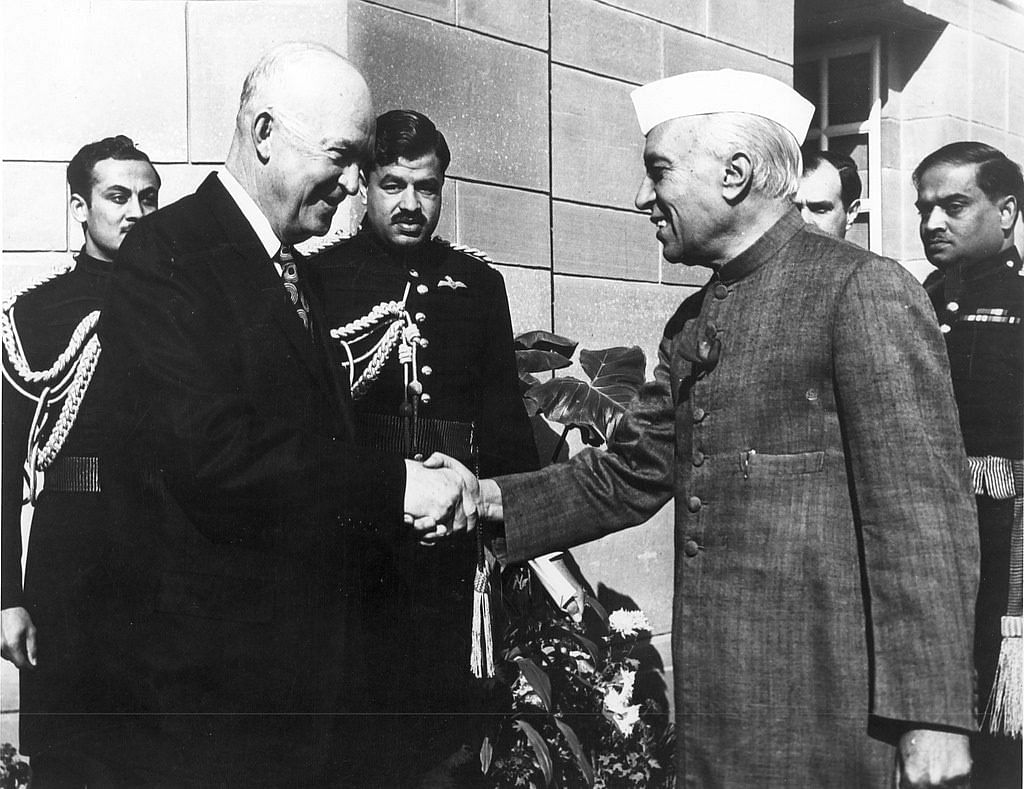On Jawaharlal Nehru’s 128th birth anniversary, many of his political, philosophical and cultural ideas appear to be under assault. Nehru, the first Prime Minister of India, is in danger of being ghettoised as merely a Congress party politician.
Will Nehru’s political and philosophical vision for India endure?
Nobody can deny Jawaharlal Nehru’s role in nation-building because he was the first Prime Minister of India. His shadow looms large over India. He is supposed to have played a critical role in stabilising democracy in India. And inculcating scientific temper is a lasting contribution. His grand vision of big dams and huge public enterprise will be remembered as his lasting legacy. He chose the path of mixed economy and gave great importance to public enterprise to what he called the ‘commanding heights’.
Looking beyond the mythification of Nehru, the Congress party has moved away from his legacy of hybrid socialist economy and Licence Raj in favour of an open economy. We saw the boom after economy was unshackled.
Nehru’s political and philosophical vision was built on Western world view. It was not rooted in the Indian genius manifest in one of the biggest economies of the world till late 18th Century. Our education system had produced scientists, technocrats, skilled manufacturers, ship builders, steel makers and men of medicine.
Nehru dumped Indian culture of ‘sarva dharma samabhav’ or respect for all faiths for an artificial construct of irreligious, amoral secularism that gave birth to a sterile education system built on ‘learning by rote’ that has produced rootless, Western clones, not Indian geniuses. This has resulted in a public discourse that is divorced from the thinking of the Indian masses. His closed mind on history didn’t allow him to create a new intellectual capital that would have provided a buoyant worldview for Indians coming out of centuries of slavery.
His worldview though highly appreciated as idealist and pacifist, resulted in a very weak security apparatus that saw the worst and only defeat for independent India. His non-alignment policy, though a great idea, resulted in India being isolated and viewed suspiciously by the West. His meek acceptance of annexation of Tibet and insistence on offering China the permanent seat in the UNSC and taking J&K issue to the UN will always be remembered as historic blunders.
India is dynamic, it has evolved over 5,000 years, and was reborn in 1947. There is no need to ‘protect’ the Nehru legacy. If it is great, it will survive; if not, it will become history. India has moved away from Nehru’s worldview especially from 1990-91. But, there is no reason to be melancholic about it.
Ratan Sharda has written a book titled “Secrets of RSS: Demystifying The Sangh”, and writes for the Organiser weekly, Times of India and Newsbharati.com
